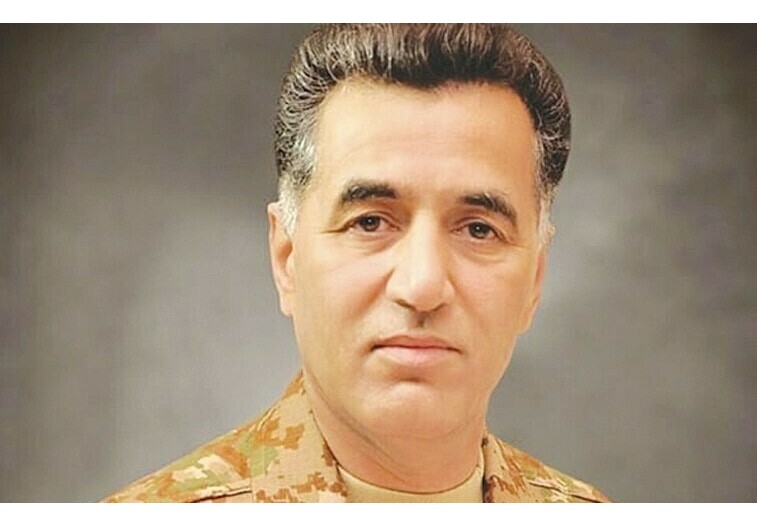ISLAMABAD, (Reuters) – Pakistan’s unprecedented arrest and court-martial of a former spy chief raises the heat on Imran Khan and could be the precursor to prosecuting the jailed former prime minister on charges of treason and attempting to incite a mutiny in the military, according to government officials and analysts.
Khan has been feuding with Pakistan’s all-powerful military after a falling out with then-army chief General Qamar Javed Bajwa in 2022, following which he was ousted from office in a parliamentary vote that he said was orchestrated by the generals.
The military has denied any involvement in his ouster. Khan has been public about the clash, which has led to the worst political turmoil in the South Asian nation in decades. The 71-year-old former cricket star has a devoted following, and any further military action against him could result in more unrest, analysts say.
Supporters of Khan went on the rampage on May 9 last year after he was briefly arrested, vandalising military installations across the country. It was the most serious challenge to the power of the military in Pakistan’s 75-year history.
Khan is on trial in a civilian court for allegedly abetting the violence, a charge he has denied. But he can face more serious charges of treason and mutiny after last month’s arrest of Lieutenant General Faiz Hameed, a Khan ally who is a former chief of the powerful Inter-Services Intelligence, officials and analysts said.
Treason and mutiny are tried by military court. Such trials are not open to the public, and the charges carry a maximum punishment of death.
“I think the arrest will be used to put pressure on Faiz Hameed to provide information that helps implicate Khan in the May 9 violence which the army chief sees as mutiny and an act of treason,” said author and defence analyst Ayesha Siddiqa, calling Hameed’s arrest a “political bombshell”.
Government officials have repeatedly said Hameed worked with Khan to plan the riots. Defence Minister Khawaja Asif told Geo TV last month that Khan provided the manpower while Hameed “masterminded the conspiracy”.
The military did not respond to a Reuters request for comment. Current army chief General Asim Munir said in May that there could be “no compromise or deal with the planners and architects of this dark chapter in our history”. He did not name anybody.
Hameed could not be reached for comment and it was not immediately known who his lawyer was.
Asked whether Khan could be tried in a military court, spokesman Major General Ahmed Sharif Chaudhry told a news conference on Thursday that the question was “hypothetical.”
But he added: “Anyone who uses any person or persons who are bound by the Army Act for his personal or political interests, and there is evidence available about that, the law will take its own course.”
HANDPICKED ALLY
Khan has said Hameed’s arrest was meant to ultimately target him as other cases against him were falling part.
“It is a drama to try my case in a military court,” he was quoted as saying by his lawyer Naeem Panjutha during a recent hearing in jail.
Hameed is being tried by court-martial on charges of corruption, misuse of power in service and violation of the Army Act after his 2022 retirement, the military says. The charges are punishable by a jail sentence of up to 14 years.
The court-martial has begun, said Chaudhry, the military spokesman.
“The retired officer is also accused of transgressing legal and constitutional boundaries for his personal interest at the behest of some particular political elements,” he said.
Khan handpicked Hameed in 2019 as ISI chief, one of the most powerful positions in Pakistan, at the intersection of domestic politics, the military and Pakistan’s foreign relations.
Hameed’s transfer from the ISI to a corps command two years later, which Khan initially opposed, highlighted the first public signs of divisions between Khan and Bajwa, the then army chief.
Khan has acknowledged in interviews to local media that he wanted Hameed to remain as the head of the ISI in 2021, when he said the opposition was planning to oust him.
Hameed’s arrest came after a string of legal victories for Khan in civilian courts, despite allegations by several senior judges, in a letter to the chief justice that was published in local media, of pressure to decide cases against the former premier.
While the military denies pressurising judges, the allegations have put the two institutions at loggerheads, analysts say.
It would be in the interest of the army’s top brass to hold a trial under military law since that would “forestall any judicial intervention” in support of Khan, said Husain Haqqani, a former Pakistan ambassador to the U.S. and a senior fellow at the Hudson Institute.
Khan’s trials have dominated local headlines for months, and even limited media access to proceedings in jail has allowed a spotlight on the process while also providing a platform for Khan.
Media are not allowed at military trials, and verdicts are announced in short statements from the military without details of evidence.
“By their very nature, military courts are secretive and their procedures arcane,” said Shuja Nawaz, a fellow at the Atlantic Council’s South Asia Center in Washington.
Siddiqa, Haqqani and other analysts said they believed the army, by trying one of its own, was demonstrating it was not ready to provide any space to Khan, who won the most seats in a national election earlier this year despite being in jail.
“Imran Khan’s trial by a military court would signal the army leadership’s resolve to eliminate Khan from the political scene no matter how high the cost,” said Yousuf Nazar, a political analyst and author of “Pakistan: The Gathering Storm”.









